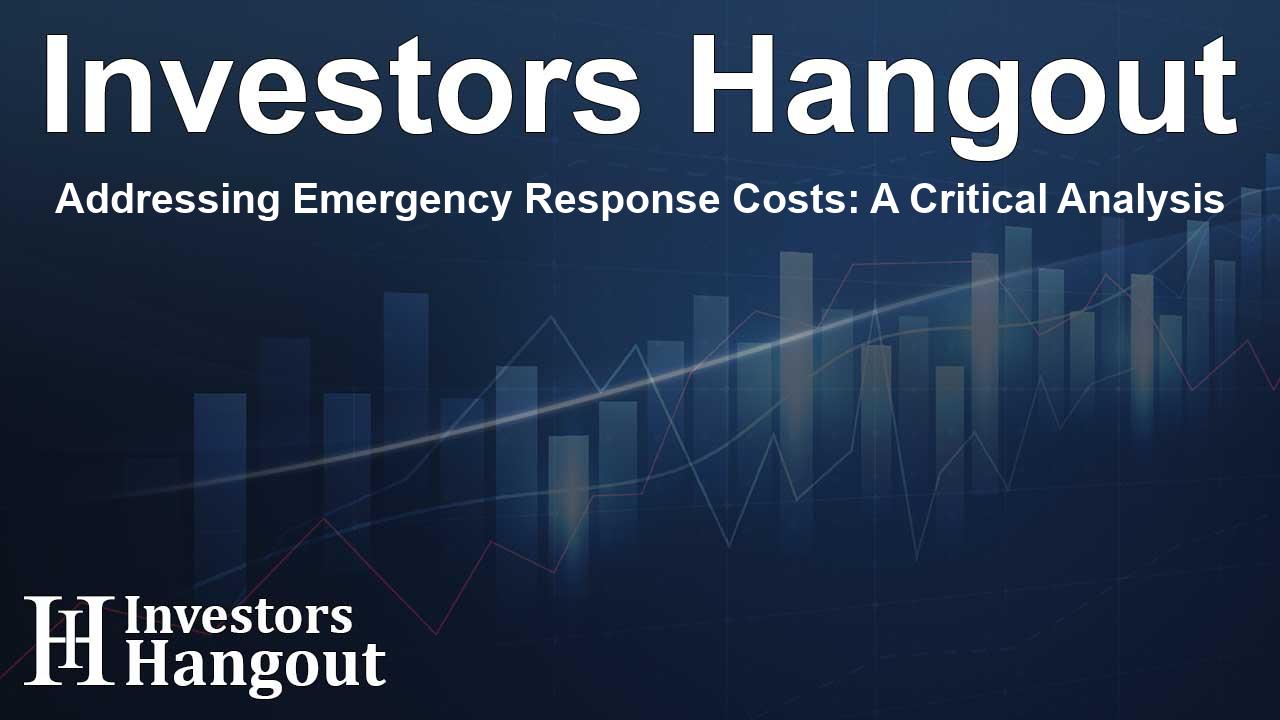Addressing Emergency Response Costs: A Critical Analysis

Addressing the Crisis of Hesitation in Emergency Medical Situations
A recent white paper from MASA® highlights a growing crisis in the workplace that deserves serious attention: many employees are hesitating or even refusing to call 911 during medical emergencies due to the fear of high ambulance costs. This issue goes beyond individual health; it threatens overall workplace well-being, productivity, and ultimately the financial health of companies.
The Reality of Ambulance Costs
In the United States, ambulance rides can range anywhere from several hundred to several thousand dollars. For many individuals, this financial burden can make them think twice before seeking urgent medical help. David Harris, CEO of MASA, emphasizes, "Every second is critical during a medical emergency, yet financial anxiety can push employees into making dire choices that could have detrimental effects on their health and safety." He stresses that employers must recognize the importance of addressing this crisis, as it plays a crucial role in the overall healthcare strategy of a company.
Insights from the White Paper
The white paper titled "The Hidden Cost of Hesitation: Why Fear of Calling 911 Should Worry Employers," brings to light significant findings derived from a national survey and industry analysis. It illustrates the alarming correlation between financial fears and the reluctance to seek emergency assistance. By sharing these insights, MASA aims to raise awareness about the far-reaching consequences of delayed medical care.
Key Insights
Some of the essential findings from the white paper are striking:
- About 25% of Americans have chosen not to call an ambulance during emergencies primarily because of the costs involved.
- Even individuals with insurance often encounter substantial out-of-pocket expenses related to ambulance services.
- Approximately 75% of adults express concerns about their ability to manage unexpected medical expenses, with nearly half of them unable to cover a $500 emergency bill without incurring debt.
- Postponing emergency treatment can lead to severe health repercussions, resulting in extended hospital admissions and higher absenteeism, which ultimately affects employer productivity.
- By implementing preventive measures, such as offering emergency transport solutions, employers can mitigate these financial barriers and help improve health outcomes.
The Importance of Taking Action
The implications of continuing to overlook this issue are severe. Delayed emergency care not only results in poor health outcomes but also leads to increased pressure on healthcare resources and higher insurance premiums. Employers have a vested interest in ensuring their workforce is healthy and able to respond promptly to emergencies without fear of financial repercussions.
Potential Solutions for Employers
To combat this issue, companies can introduce supplemental emergency transport policies, which provide reassurance to employees regarding costs associated with ambulance rides. By alleviating the financial burden, these solutions can empower workers to prioritize their health without the anxiety of unexpected bills.
About MASA®
Established in 1974, MASA® (Medical Access & Service Advantage) stands out as the sole American entity dedicated to offering comprehensive nationwide protection against emergency transportation costs. The company not only safeguards members from hefty medical expenses but also provides various benefits that assist individuals during recovery. With a member base exceeding 2 million, MASA delivers its services across all 50 states, Canada, and additional 14 international locations.
For more detailed information regarding MASA and its offerings, individuals can visit the company’s website.
Frequently Asked Questions
What is the main concern raised in the MASA white paper?
The white paper highlights that fear of ambulance costs can lead employees to hesitate in seeking medical help during emergencies.
Why do employees hesitate to call 911?
Employees often worry about the high costs associated with ambulance rides, which makes them reluctant to seek immediate help.
How does this hesitation affect employers?
Delayed emergency care can result in poor health outcomes, increased absenteeism, and ultimately affect productivity within the workplace.
What can employers do to alleviate this issue?
Employers can implement supplemental emergency transport solutions to help employees feel secure about the financial aspects of calling 911.
How does MASA support its members?
MASA provides protection against out-of-pocket expenses related to emergency transportation and offers various benefits during recovery and beyond.
About The Author
Contact Henry Turner privately here. Or send an email with ATTN: Henry Turner as the subject to contact@investorshangout.com.
About Investors Hangout
Investors Hangout is a leading online stock forum for financial discussion and learning, offering a wide range of free tools and resources. It draws in traders of all levels, who exchange market knowledge, investigate trading tactics, and keep an eye on industry developments in real time. Featuring financial articles, stock message boards, quotes, charts, company profiles, and live news updates. Through cooperative learning and a wealth of informational resources, it helps users from novices creating their first portfolios to experts honing their techniques. Join Investors Hangout today: https://investorshangout.com/
The content of this article is based on factual, publicly available information and does not represent legal, financial, or investment advice. Investors Hangout does not offer financial advice, and the author is not a licensed financial advisor. Consult a qualified advisor before making any financial or investment decisions based on this article. This article should not be considered advice to purchase, sell, or hold any securities or other investments. If any of the material provided here is inaccurate, please contact us for corrections.
